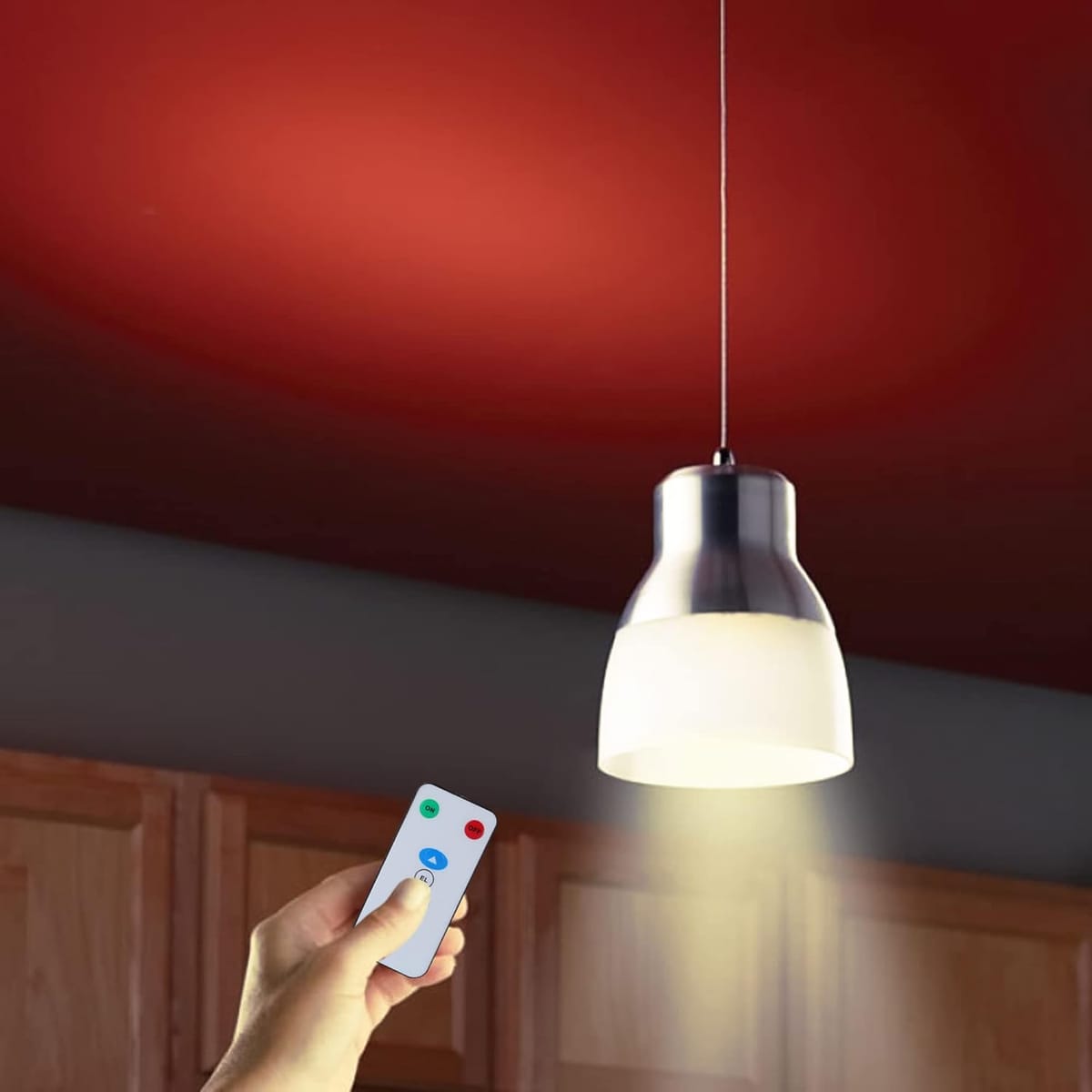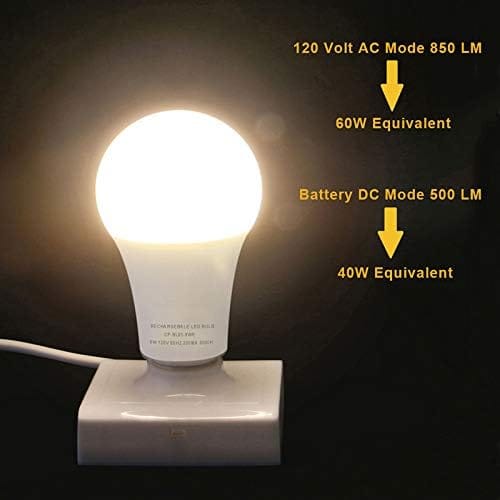Key Takeaways:
- Rechargeable light bulbs are a sustainable and cost-effective alternative to conventional bulbs, offering significant energy savings and longevity.
- These bulbs come with built-in rechargeable batteries, making them ideal for power outages and remote locations.
- The initial investment in rechargeable light bulbs is offset by their long-term benefits, including reduced energy consumption and environmental impact.
Introduction to Rechargeable Light Bulbs

Rechargeable light bulbs have emerged as a popular alternative to traditional incandescent and fluorescent bulbs. These innovative lighting solutions are designed to offer both convenience and sustainability. But what exactly are rechargeable light bulbs, and how do they work? This article delves into the intricacies of rechargeable light bulbs, exploring their benefits, functionality, and applications.
How Rechargeable Light Bulbs Work
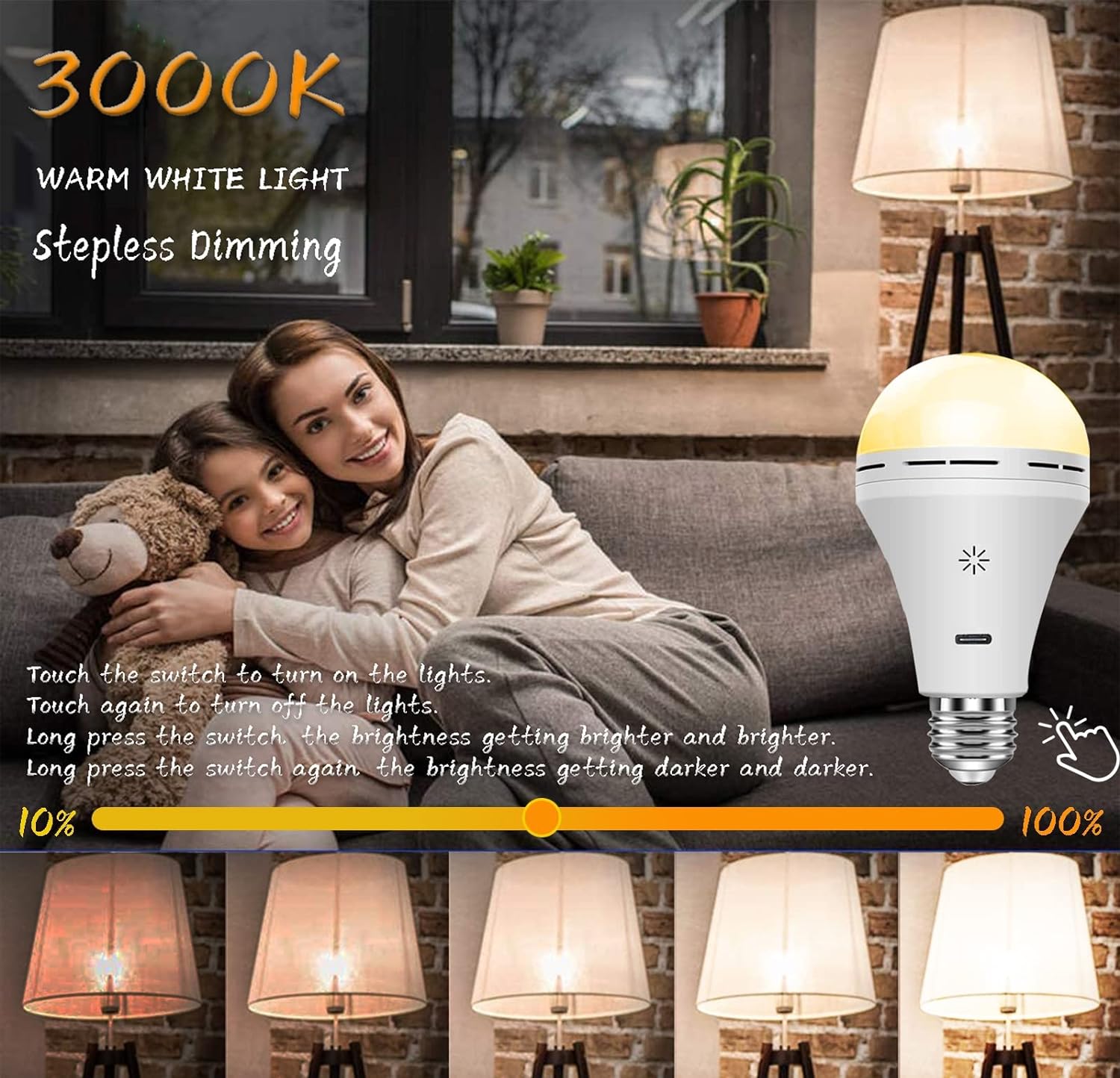
Rechargeable light bulbs are equipped with built-in rechargeable batteries that store energy when the light bulb is plugged into a power source. When the power goes out, these bulbs can continue to emit light, thanks to the stored energy. This makes them particularly useful during power outages or in areas with unreliable electricity supply.
The technology behind rechargeable light bulbs often involves light-emitting diodes (LEDs), which are known for their energy efficiency and longevity. LEDs consume significantly less power compared to conventional bulbs, making rechargeable light bulbs an energy-efficient choice.
Benefits of Rechargeable Light Bulbs
One of the primary benefits of rechargeable light bulbs is their energy efficiency. These bulbs consume less energy, leading to cost savings on electricity bills. Additionally, the built-in rechargeable battery means that you don't have to replace the bulb frequently, further reducing costs.
Another significant advantage is their environmental impact. Rechargeable light bulbs are more environmentally friendly than conventional bulbs, as they produce less waste and consume less energy. This makes them a sustainable choice for eco-conscious consumers.
Applications of Rechargeable Light Bulbs
Rechargeable light bulbs are versatile and these lights can be used in various settings. They are ideal for emergency lighting during power outages, ensuring that you are never left in the dark. These bulbs are also perfect for outdoor activities such as camping, where access to electricity may be limited.
In addition to emergency and outdoor use, rechargeable light bulbs can be used in everyday lamps and household light fixtures. Their energy efficiency and longevity make them a practical choice for regular use, providing consistent and reliable lighting.
Types of Rechargeable Light Bulbs
There are several types of rechargeable light bulbs available on the market, each designed to meet specific needs. Some common types include rechargeable LED light bulbs, which are known for their energy efficiency and long lifespan. These rechargeable LED light bulbs are available in various color temperatures, allowing you to choose the right ambiance for your space.
Another type is the rechargeable incandescent bulb, which mimics the warm glow of traditional incandescent bulbs but with the added benefit of a built-in rechargeable battery. These bulbs are ideal for those who prefer the look and feel of conventional bulbs but want the advantages of rechargeable technology.
Energy Efficiency and Cost Savings
Rechargeable light bulbs are a cost-effective lighting solution due to their energy efficiency. LEDs, which are commonly used in these bulbs, consume significantly less power than traditional incandescent bulbs. This translates to lower electricity bills and long-term cost savings.
While the initial cost of rechargeable light bulbs may be higher than the upfront cost of conventional bulbs, the long-term benefits outweigh the upfront investment. The reduced energy consumption and longer lifespan of these bulbs result in significant savings over time.
Environmental Impact
The environmental impact of rechargeable light bulbs is another compelling reason to make the switch. These bulbs consume less energy, reducing the demand for electricity and lowering greenhouse gas emissions. Additionally, the longer lifespan of rechargeable light bulbs means less waste and saves money as they do not need to be replaced as frequently as conventional bulbs.
Rechargeable light bulbs also contribute to reducing the environmental impact of battery disposal. The built-in rechargeable batteries can be replaced frequently and recharged multiple times, reducing the need for disposable batteries and minimizing environmental harm.
Battery Life and Performance
The battery life of rechargeable light bulbs is a crucial factor to consider. Most rechargeable light bulbs are equipped with lithium-ion batteries, known for their long lifespan and reliability. These batteries can typically last for several hours on a single charge, providing ample lighting during power outages or outdoor activities.
The performance of rechargeable light bulbs is also noteworthy. LEDs used in these bulbs provide bright and consistent light, ensuring that you have adequate illumination when needed. The quality of light emitted by rechargeable bulbs is comparable to that of conventional bulbs, making them a suitable replacement for regular use.
Initial Investment and Long-Term Benefits
The initial investment in rechargeable light bulbs may be higher than that of conventional bulbs. However, the long-term benefits make this investment worthwhile. The energy savings and reduced need for frequent replacements result in significant cost savings over the long run over time.
Moreover, the convenience of having a reliable light source during power outages or in remote locations adds to the value of rechargeable light bulbs. The peace of mind that comes with knowing you have a dependable lighting solution during a power outage, is priceless.
Remote Control and Smart Features
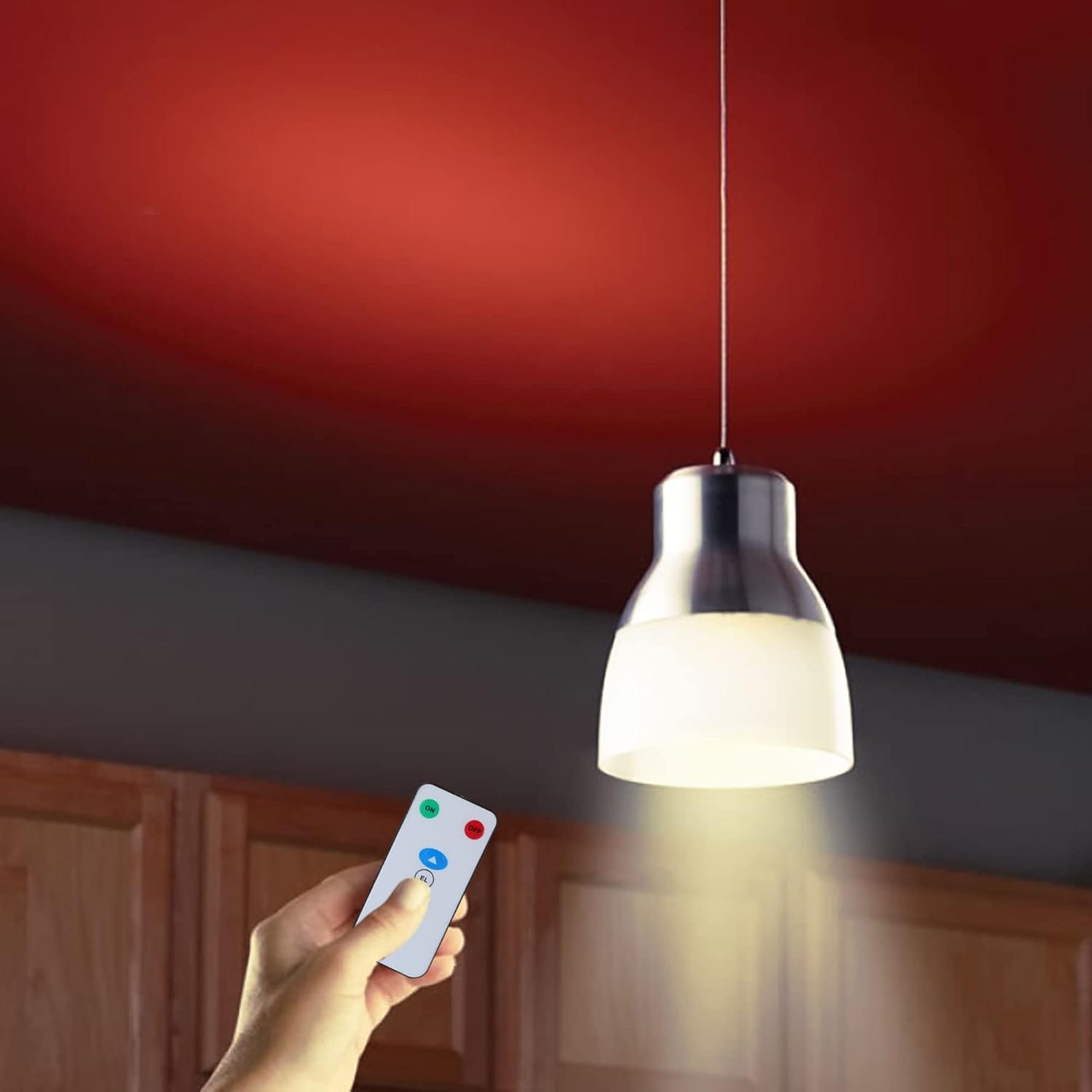
Many rechargeable light bulbs come with included remote and control capabilities, allowing you to adjust the brightness and color temperature from a distance. This feature adds convenience and flexibility, enabling you to create the perfect lighting ambiance without having to get up.
Some advanced rechargeable light bulbs also offer smart features, such as compatibility with home automation systems. These bulbs can be controlled via smartphone apps or voice commands, providing a seamless and integrated lighting experience.
Comparing Rechargeable Light Bulbs to Other Bulbs
When comparing rechargeable light bulbs to other types of bulbs, several factors come into play. Rechargeable bulbs offer the advantage of built-in batteries, providing light during power outages. They are also more energy-efficient and have a longer lifespan compared to conventional bulbs.
However, the initial cost of rechargeable light bulbs may be higher than that of regular bulbs. Despite this, the long-term benefits, including energy savings and reduced environmental impact, make rechargeable light bulbs a worthwhile investment.
Popular Brands and Models
Several brands offer high-quality rechargeable light bulbs, each with unique features and benefits. Some popular brands include Philips, GE, and Energizer, known for their reliable and efficient lighting solutions.
These brands offer a range of models, from basic rechargeable LED light bulbs to advanced smart bulbs with remote control capabilities. When choosing a rechargeable light bulb, consider factors such as battery life, brightness, and additional features to find the best option for your needs.
Installation and Maintenance
Installing rechargeable light bulbs is straightforward and similar to installing conventional bulbs. Simply screw the bulb into the light switch or fixture and ensure it is fully charged before use. Most rechargeable light bulbs come with a charging indicator, making it easy to know when the bulb is ready for use.
Maintenance of rechargeable light bulbs is minimal. Regularly charging the rechargeable bulb and ensuring it is not exposed to extreme temperatures will help prolong its lifespan. Additionally, cleaning the bulb and light fixture periodically will ensure optimal performance.
Safety Considerations
Safety is an important consideration when using rechargeable light bulbs. Ensure that the bulb is compatible with your light fixture and that it is not exposed to water or extreme temperatures. Follow the manufacturer's instructions for charging and usage to prevent any potential hazards.
Rechargeable light bulbs are generally safe to use, but it is essential to handle them with care. Avoid dropping the bulb or exposing it to impact, as this can damage the lamp' built-in battery and affect its performance.
Future Trends in Rechargeable Lighting
The future of rechargeable lighting looks promising, with ongoing advancements in LED technology and battery performance. As battery power and technology continue to evolve, we can expect to see even more energy-efficient and longer-lasting rechargeable light bulbs.
Innovations such as wireless charging and integration with smart home systems are also on the horizon, offering even greater convenience and functionality. The continued focus on sustainability and energy efficiency will drive the development of new and improved rechargeable lighting solutions.
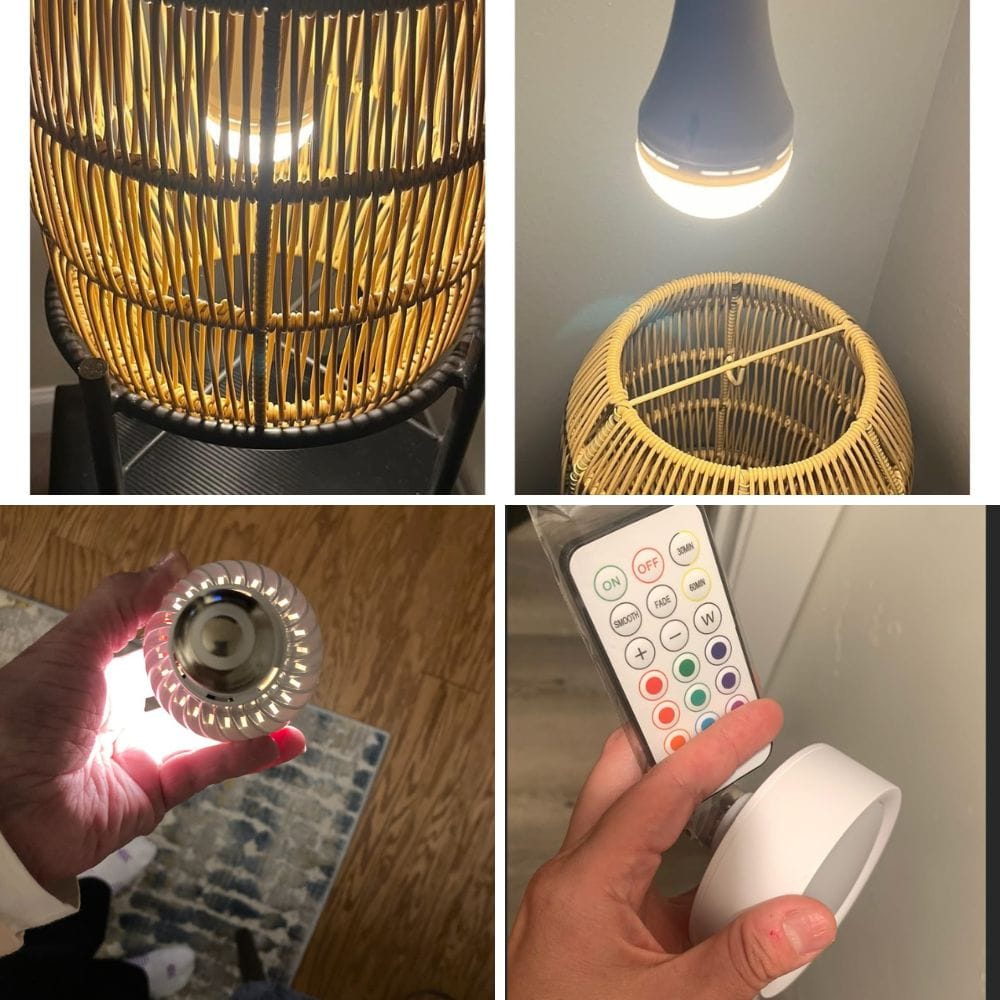
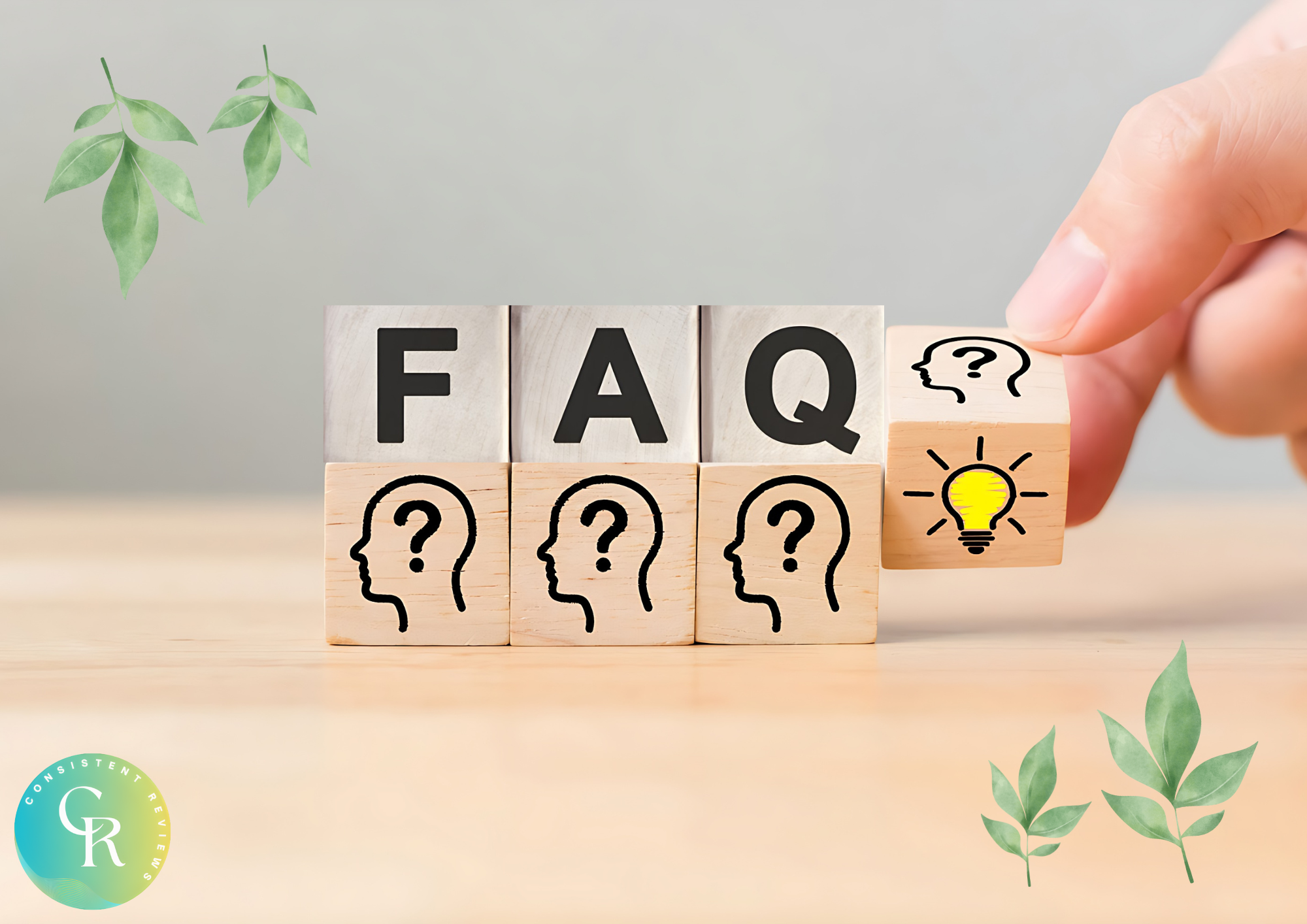
What are the main benefits of using rechargeable light bulbs?
Rechargeable light bulbs offer numerous benefits, such as energy efficiency, cost savings, and reduced environmental impact. They provide reliable lighting during power outages and have a longer lifespan compared to conventional bulbs, resulting in fewer replacements and less waste.
How long do rechargeable light bulbs last on a single charge?
The battery life of rechargeable light bulbs varies depending on the model and usage. Most rechargeable light bulbs can last for several hours on a single charge, providing ample lighting during power outages or outdoor activities. The exact duration will depend on factors such as brightness settings and battery capacity.
Are rechargeable light bulbs compatible with all light fixtures?
Rechargeable light bulbs are designed to be compatible with most standard light fixtures. However, it is essential to check the manufacturer's specifications to ensure compatibility with your specific fixture. Additionally, follow the installation and usage instructions provided by the manufacturer to ensure safe and optimal performance.

Rechargeable light bulbs are a significant advancement in lighting technology, offering numerous benefits over conventional bulbs. Their energy efficiency, cost savings, and environmental impact make them a practical and sustainable choice for various applications. With ongoing advancements in technology, the future of rechargeable lighting looks bright, promising even greater convenience and efficiency.
